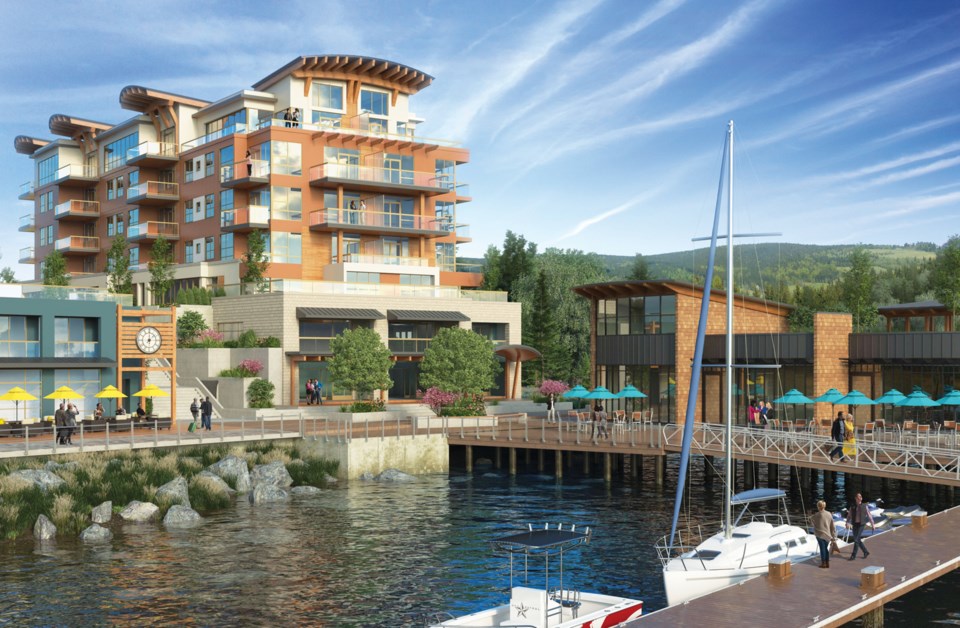Gibsons council has reversed the recommendations of its planning committee and granted the developers of the George Hotel and Residences project a two-year extension on development permits and the deadline for completing a land exchange.
The two-year extension was what Klaus Fuerniss Enterprises (KFE) had originally requested, but on May 5 the committee recommended a one-year extension with the conditions that the company remove the construction fencing, clean up the site on Gower Point Road, and work with the Town to allow a path to be built before construction started.
Mayor Bill Beamish and Coun. Aleria Ladwig, who’d supported the one-year time frame at the committee meeting, said when it came to council May 19 that they’d changed their minds after hearing more from KFE principal Klaus Fuerniss.
Fuerniss agreed in writing to allow a temporary path across the property and help the Town complete a permanent waterfront pathway even if the project does not go ahead.
A portion of the letter, read into the record at the meeting, said, “We also agree that once the use of this temporary statutory right of way is terminated, if the Town wishes to create an alternative pathway in the foreshore on the town’s existing sewer right of way we will cooperate fully in accommodating such use.”
“In the end of it,” said Ladwig, “we get something out of this regardless, and really that was my concern… So as long as the community will benefit in some way and he’s willing to work with us collaboratively, so be it.”
Councillors David Croal and Stafford Lumley, who supported a two-year extension at committee, did the same at council.
Lumley said he thought it would be a “bad look” to “pull the rug out from under somebody” in the current economic climate.
“What would this council look like if this developer’s trying to do his best to work with the Town and we don’t work with him? What would future developers think of this council or the town?” Lumley said.
Another councillor who held to their earlier position was Annemarie De Andrade, who did not support any extension of the deadlines. She said the situation has changed since the project was first approved.
“We have now a drastic change in the economic landscape, so we are going ahead with the same form and character, the same proposal, and we have no idea what’s coming,” she said. “The role of council is to make a project viable, a project that has a future for our town, and I don’t think anyone here with certainty, right now, can say that we understand this project is a good thing for the town.”
In the original April letter requesting the extensions, Fuerniss said “severe and adverse financial and market conditions” because of the COVID-19 pandemic meant the company had “no present ability to attract the funding necessary to commence this project.”
At the planning committee meeting, Croal offered another explanation for the difficulty getting the project financed, claiming litigation and other challenges by opponents had scared off investors.
That assertion was repeated at the May 19 council meeting by Beamish, who said his sympathy would lie with anyone who had a project on the books that had a two-year window “which was eaten up by 18 months of litigation and defending the project.”
“That’s a lot of what has happened in this particular case,” Beamish said. “The developer has not been able to get wind under his sails, in terms of proceeding and proceeding with investors. They have come and gone and hearing [Fuerniss] explain it, they’ve come and gone primarily because of the challenges and the attitude of the community towards the project.”
Suzanne Senger, president of the Gibsons Alliance of Business and Community, a group opposed to the George project, challenged that view during the public question period. She said the delays have largely been of the developer’s own making.
“The developer has not met his own legal obligations. He hasn’t done the due diligence. That’s what’s holding them up,” she said.



